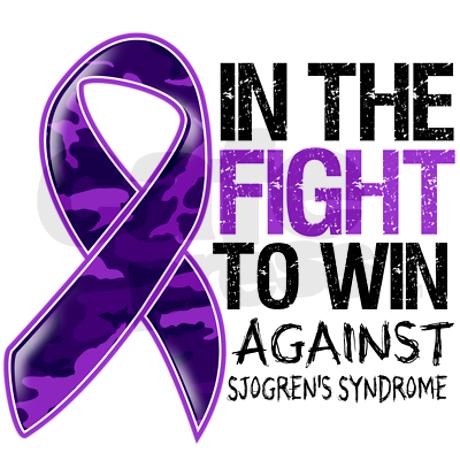There are a lot of autoimmune diseases out there, some well-known (like lupus, thanks to “House”) and others that aren’t well-known. Despite Sjogren’s syndrome being the third most common autoimmune disease (behind lupus, according to the Rare Genomics Institute), it’s not a disease many people have knowledge of and, in my experience, not many of my doctors even know what it is.
Sjogren’s syndrome is an autoimmune disease associated with fatigue, joint pain and
dryness (the body attacks its moisture-producing glands). Like most autoimmune diseases, it’s rather unpredictable outside of the main symptoms in terms of how it will present in patients, and it can be hard to diagnose.
So when I was diagnosed with Sjogren’s syndrome, I was completely overwhelmed and undereducated. My first thought wasn’t, “What does this mean for me?” but rather, “How do I spell that?” I kept telling myself that while I was definitely struggling more than the healthy people around me, it wasn’t “that bad,” and I just needed to push through it. I turned down all the medications my doctor recommended and left the office trying to find more answers.
While I kept denying that anything was really wrong and that I would be fine, there were five words my doctor said that kept replaying in my head anytime I got a new symptom or an old symptom was particularly bad. What she said to me was: “You don’t have to suffer.”
When my hands start tingling, those words echo in my head. When my knees get so
red and swollen that they hurt to bend, they echo again. When my skin gets so dry that I have huge rashes, there they are again. When I feel so tired I can barely function, I hear them and think, “Why am I letting myself suffer?”
The biggest part of accepting that you have a chronic illness (at least for me) is accepting that you don’t have to suffer. Chronic pain, fatigue and strange sensations become your normal. You even forget certain symptoms because you’re just so used to them, and it doesn’t occur to you that anything is off until you’re talking to someone who’s healthy. Then you realize it’s actually strange that activity x causes y. It’s in these moments that I’ve had to stop and think of how different my experiences really are, and those words replay in my
head.
It’s been seven months since my diagnoses, and after seven months of denying I had a problem, accepting I had a problem but denying it would get any worse, researching all I could about it, then finally accepting that this is my life now and I need to make serious changes to have a decent quality of life, I’m finally going back to my rheumatologist for more tests and to talk about my medication options.
My point is, I could have had seven months of better health if I had listened to her in the first place. I was already suffering. Just because I wasn’t in the hospital and I was able to push through daily life didn’t mean I wasn’t. So if you’re out there with an autoimmune disease (or really any chronic issue), please think about those five words, because really, you don’t have to suffer.
The Mighty is asking the following: Describe a moment when you were at a hospital and a medical staffer, fellow patient or a stranger made an unforgettable comment. How did you respond to it? If you’d like to participate, please send a blog post to community@themighty.com. Please include a photo for the piece, a photo of yourself and 1-2 sentence bio. Check out our Submit a Story page for more about our submission guidelines.
Lead photo source: Thinkstock Images

